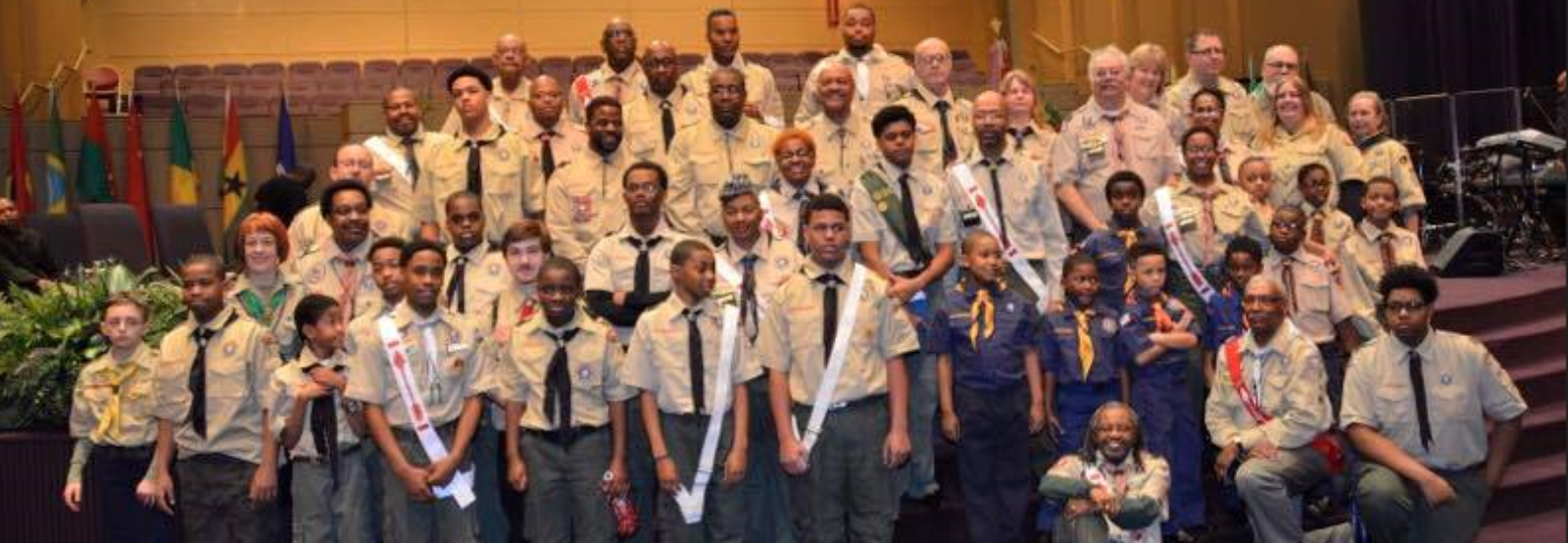Advancement
Scouting provides a series of surmountable obstacles and steps in overcoming them through the advancement method. Advancement is the process by which a Scout progresses through the Ranks in the Scouting program by the gradual mastery of Scouting skills and personal growth. Scouts plan their own advancement and progress at their own pace as they meet each challenge. Scouts are recognized and rewarded for each achievement, which helps them gain self-confidence. The steps in the advancement system help a Scout grow in self-reliance and in the ability to help others.
Association with Adults
Scouts learn a great deal by watching how adults conduct themselves. Scout leaders can be positive role models for the members of the troop. In many cases a Scoutmaster who is willing to listen to boys, encourage them, and take a sincere interest in them can make a profound difference in their lives.
Personal Growth
As Scouts plan their activities and progress toward their goals, they experience personal growth. The Good Turn concept is a major part of the personal growth method of Scouting. Scouts grow as they participate in community service projects and do Good Turns for others. Probably no device is as successful in developing a basis for personal growth as the daily Good Turn. The religious emblems program also is a large part of the personal growth method. Frequent personal conferences with his Scoutmaster help each Scout to determine his growth toward Scouting’s aims.
Leadership Development
The Scouting program encourages scouts to learn and practice leadership skills. Every Scout has the opportunity to participate in both shared and total leadership situations. Understanding the concepts of leadership helps scouts accept the leadership role of others and guides them toward the citizenship aim of Scouting.
Must-know Information
Scouts are expected to meet the requirements as they are stated—no more and no less. Scouts must do exactly what is stated in the requirements. If it says “show or demonstrate,” that is what you must do. Just telling about it isn’t enough. The same thing holds true for such words as “make,” “list,” “in the field,” and “collect,” “identify,” and “label.”

